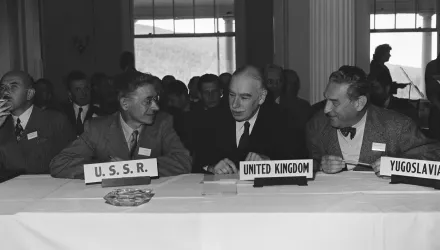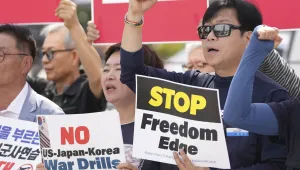International Security is America's leading peer-reviewed journal of security affairs.
Summary
Alliances between local combatants and neighboring rulers played a crucial role in the Congo Wars. Yet the transnational dimensions of the conflicts remain understudied. Case studies reveal that the rulers of Angola, Rwanda, Sudan, Uganda, and Zimbabwe intervened in Congo to secure their own political survival. They forged alliances to thwart domestic rebels supported by foreign rulers or to gain access to resources that could ensure the loyalty of domestic elites.
Tamm, Henning. “The Origins of Transnational Alliances: Rulers, Rebels, and Political Survival in the Congo Wars.” Summer 2016
The full text of this publication is available in the link below.



